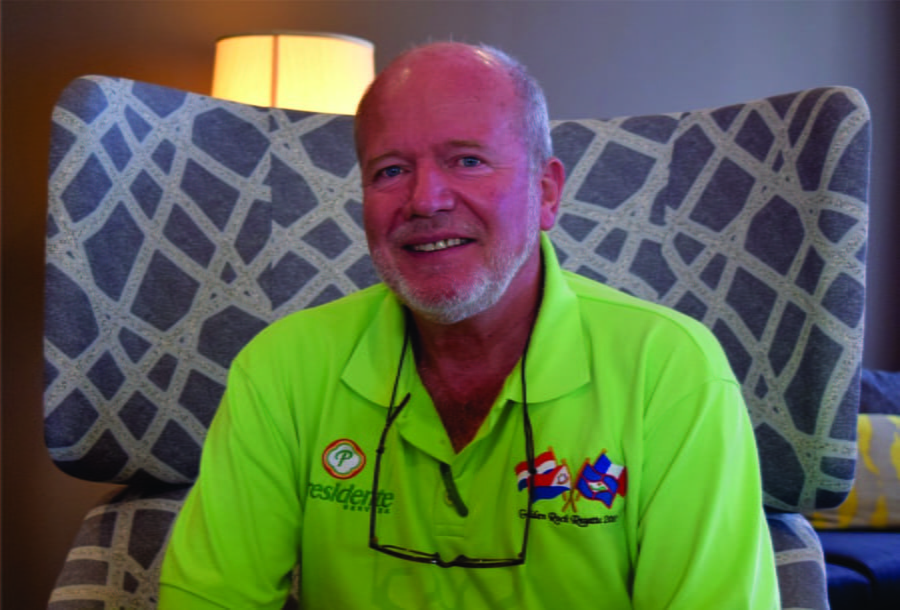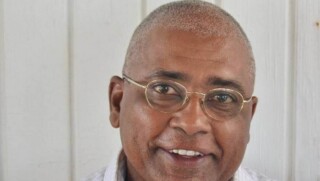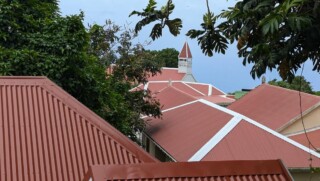Koos Sneek: Shortfall in ‘Free Allowance’ Remains Huge Concern

Koos Sneek says the shortfall in the so-called ‘free allowance’ remains a huge issue for any future government. Photo: I Harald Linkels
Oranjestad- Koos Sneek, member of the dissolved island council of St. Eustatius and prominent member of the Democratic Party on the island, has sent a critical letter to state secretary Raymond Knops in which he raises various points of concerns.
One of the problems that Sneek cites is the so-called ‘free allowance’. The ‘free allowance’ is an allowance on the budget that the BES-islands receive from The Hague for the execution of tasks which fall under local government.
“In addition to the report of the ‘Committee of Wise Men’, which ultimately led to the intervention, there have been several other reports that have examined the role of the Interior Affairs and Kingdom Relations, other ministries and government entities and are very critical of this. We all know the 2015 evaluation report from the Spies commission, which never really had a serious follow-up,” according to the letter Sneek sent to Knops.
According to Sneek, the ‘frame of reference study’ commissioned by the Ministry of the Interior Affairs and Kingdom Relations in 2012 was carried out by consultancy firm ldeeversa pointed out that in determining the amounts for the ‘free allowance, dit not take into consideration the huge backlogs on the islands. Nevertheless, according to Sneek, the minister (Plasterk, ed.) determined the amount of the ‘free allowance’ at the lowest possible limit indicated.
“And now in 2018 you evidently conclude that the conclusions of the study are indeed correct and that there are extensive backlogs in virtually all areas. In 2015, the free allowance was again assessed by ldeeversa on behalf of the Minister of the Interior and Kingdom Relations. The subsequent report stated that the benefit for all islands is structurally too low. For St. Eustatius alone, the calculated deficit is 3.2 million dollars “, Sneek writes.
Sneek says that his concern arises from the fact that he reads in the letter from the Secretary of State to the Second Chamber, that the challenge is to achieve maximum effect ‘with the existing means’ and that, for reconstruction of the roads there are not enough financial resources. Sneek says that mention is also made of the fact that funds ‘have been temporarily made available’ from the so-called ‘regional envelope’ and within the coalition agreement.
“My question however is: what about the longer term? How does the State Secretary think that in the future a restored local government can carry out its duties in a responsible manner if the financial resources are structurally too low?
In Sneek’s opinion, there is no proposal to do something about the level of the free allowance in a structural way, and this, according to the politician, is a problem.
“When reading your observations, an increase seems almost inevitable. And of course, it is important that the income from local sources is also collected as should be. However essential this local income, it will not solve the financial problems of the island”, Sneek concludes with the passage in his letter regarding the ‘free allowance’.
Sneek is not alone in his criticism on the topic of the ‘free allowance. On Bonaire questions about the level of the ‘free allowance’ have been raised time and again by local politicians. For instance, former commissioner for the DP Bonaire, Clark Abraham, has always been vocal on the issue of the ‘free allowance’.
“The Hague always says that objective criteria are important in the discussions with the islands,” says Abraham, when asked his opinion on the subject. “However, when it comes to drawing consequences from objective criteria or from reports that determine matters on the basis of measurable data and hard figures, The Hague is often ignores the facts”.












